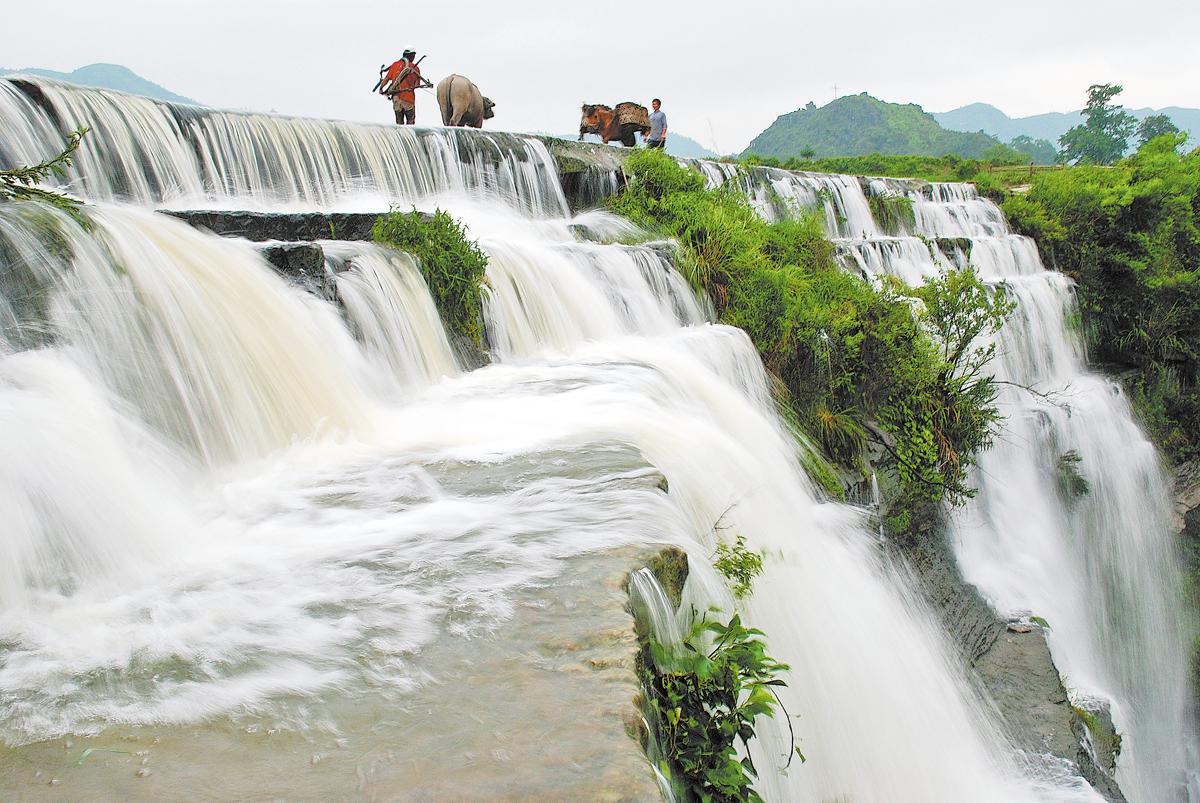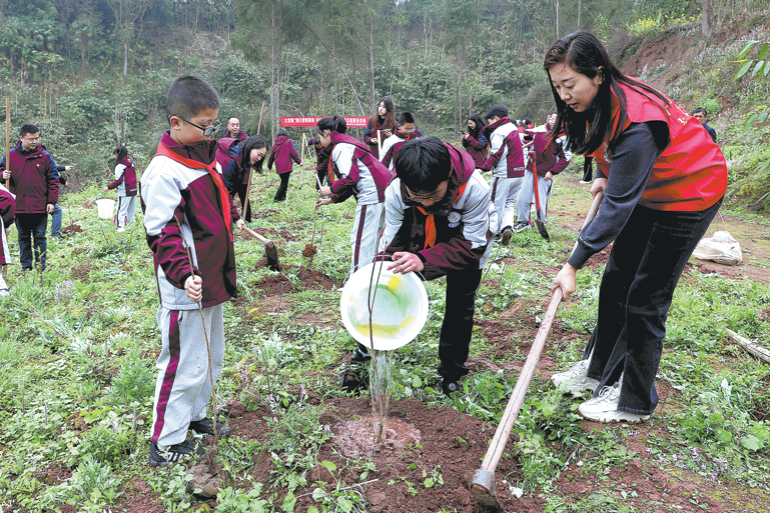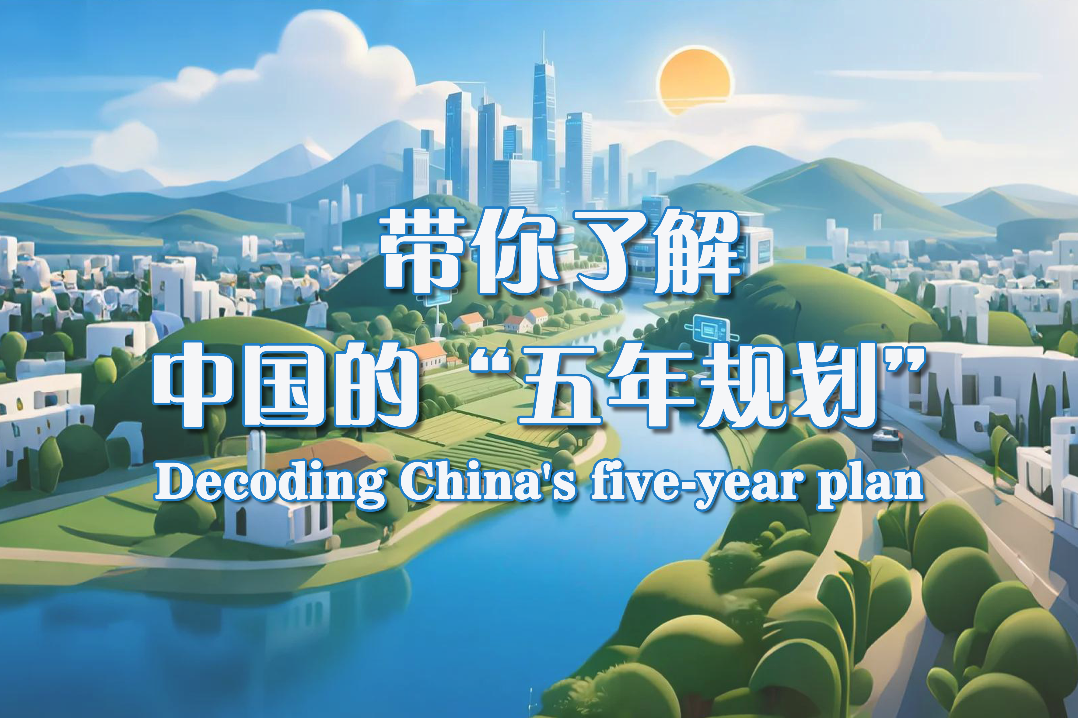Catching every last drop
Guizhou sets about conserving and utilizing valuable resource before it slips underground


"Unlike traditional methods that focus solely on controlling soil erosion, this project emphasizes the coordination of soil and water resource protection, and the improvement of residents' living conditions and income," Chen said.
Aligned with general rural vitalization efforts, the project has attracted agricultural companies that have so far planted 34 hectares of economic forests, including honey plums and apples, which are specialties in Guizhou. This practice has addressed slope erosion, protected arable land and led to the planting of over 347 hectares of water conservation forests.
Xie Daojiao, chairman of Longli Shengqi Agricultural Technology Co, said his company has leased land from the village to grow apples, yellow peaches and honey plums.
"During the first three years of seedling growth, I'm responsible for my own profits and losses," Xie said. "Starting from the fourth year, after the trees begin to bear fruit, I will give annual dividends to the village. We also hire villagers for labor, providing them with wages."
Since the project's inception, the soil erosion control rate in the local watersheds has reached 87 percent, which is considered a very high benchmark, according to the Longli county water resources bureau.
Over the past three years, Longli's forest and grass coverage has increased by 3.14 percentage points. The project has also generated an annual economic benefit of 6.06 million yuan ($853,000), with a net profit exceeding 1 million yuan, significantly boosting local incomes.
























